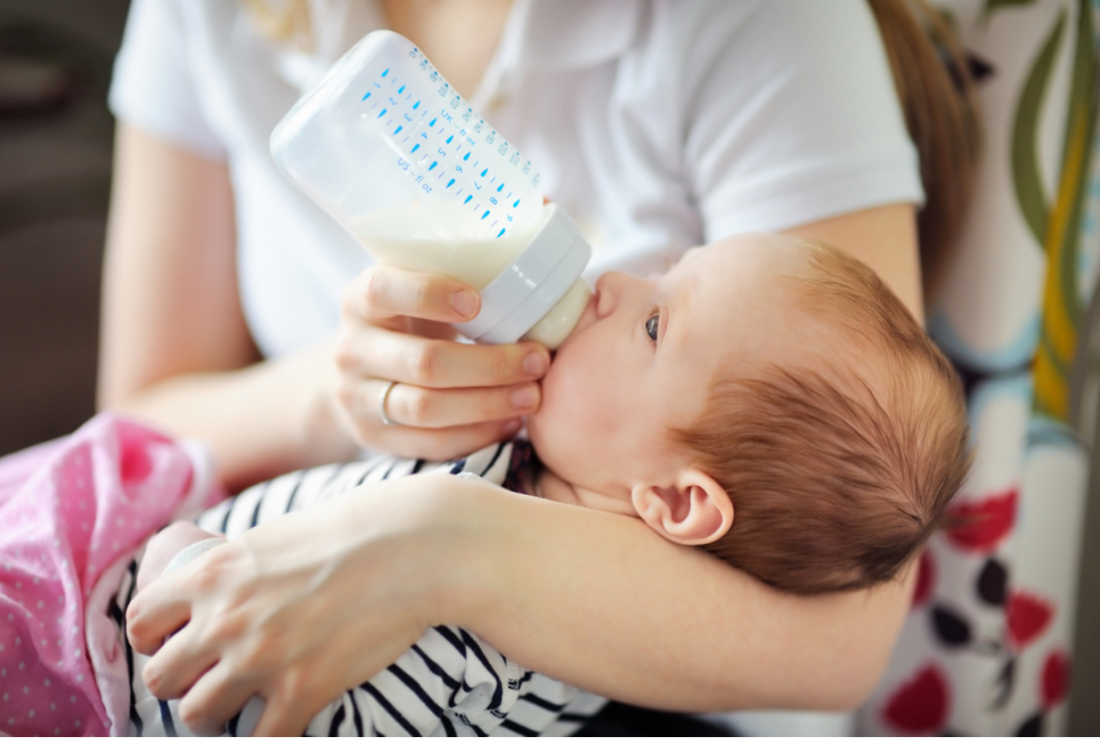This is a sponsored guest post.
If you have made the choice to feed your baby with baby formula, then you have potentially experienced some of the mildly problematic points of this decision. While baby formula can be completely nutritious for your child, there are often other problems, some having to do with finicky newborns or even acid reflux.

Encountering these issues is usually nothing to worry about. In fact, many of them can be solved with some simple tips and strategies. We aim to highlight some of the most essential tips for feeding your baby with baby formula.
Keep reading if you are a new mother or indeed father and want to learn more about bottle feeding your baby with formula.
Select The Most Appropriate Formula
Entering any supermarket or baby store will give you an immediate impression as to the magnitude of formula varieties out there. While most formulas are similar, it is not true that just any old formula will be optimal for your newborn. Ask your doctor or consult online resources to determine the composition of different formulas and their effects on baby development. If your child is allergic to certain preparations, they may experience some stomach upset, watery eyes, or even wheezing. If this is the case, you can consider looking at low-lactose or soy alternatives. With all of the options out there, there is sure to be a formula that is suited to your baby’s particular needs.
Assume The Proper Position
In terms of the mechanics of bottle-feeding formula, there are some best practices to follow to ensure good feeding and comfort for the feeder. For one, make sure that the newborn’s head is supported with your arm. Keep your child’s head at a 45-degree angle and keep the neck and head aligned. This will ensure that the baby can feed properly without being overwhelmed. It can also help to prevent excess air from being swallowed by your child. To maintain your own comfort, make sure to rest your arm on a pillow or armrest. Switching arms halfway through the feeding can also alleviate some of the strain.
If you’re not breastfeeding, it can certainly be helpful to be present whenever your baby is feeding. Never leave your newborn with a formula bottle alone, but rather use this time to develop the bond with your baby!
Burp It Out
While a baby who is being bottle fed will know when they have eaten enough and will simply stop eating once full, if you notice that your baby stops eating rather suddenly, they may need some assistance. Baring a more serious problem, your child likely has air trapped in its digestive system. You will need to give your child a helping hand by burping them with a gentle pat on the back. Following this, you should find that feeding can easily be resumed if they are still hungry.
Be Confident With Your Decision
It is inevitable that if you have chosen to feed your baby with formula that you will experience some, hopefully mild, judgement. The best thing to do is to maintain your composure and be confident with your decision. As long as your baby is healthy and happy, then you have nothing to worry about.
You Know What’s Best For Your Baby
With these tips, you should now have the confidence and knowledge necessary to formula feed your newborn. You will inevitably run into additional trials and tribulations in your new position as a parent, such as when feeding your child while they have a mild cold or if they are teething. However, if you continue to educate yourself on the basics of formula feeding you can and you will succeed!




